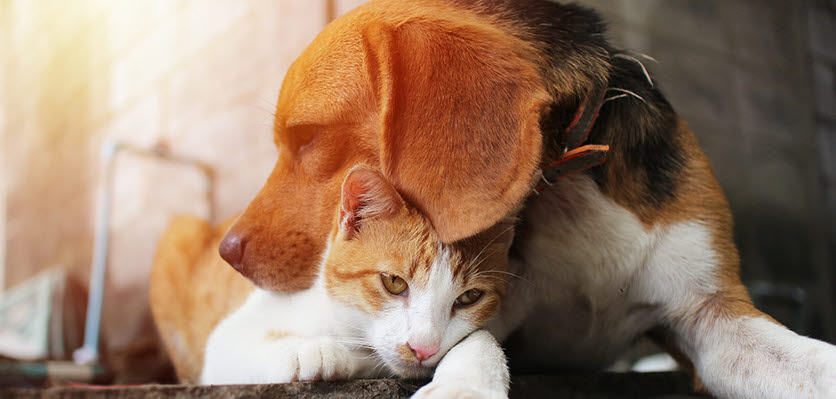
Arthritis tends to creep up over time and your pet won't always show obvious signs until they are in considerable pain.
The disease is caused by the wearing down of the cartilage that covers the bones at the end of a joint. This cartilage usually acts as a cushion and helps joints move freely but as it wears down, the ends of the bones become exposed and can rub together.
You can imagine the pain this might cause your pet. It can also severely affect your pet’s quality of life.
Arthritis does seem to be worse in the colder months but it can certainly affect your pet all year round. It is very important to understand that your pet won’t necessarily limp or yelp if they are in pain so we recommend you familiarise yourself with the symptoms of arthritis. Don’t be tempted to put the changes down to 'they’re just getting old' as your pet may be in significant pain, they just can't tell you.
Signs of arthritis in dogs to watch out for:
- Hesitant to jump into the car, up onto furniture or use stairs
- Lowers their body slowly when going to lie down then falls in a heap
- Is a bit slow to get going after getting up and may slip on floorboards
- Is slowing down on walks or is reluctant to walk as far as they used to
- Exhibits behavioural changes such as being a bit grumpier than usual
How do I know if my cat has arthritis?
Cats are even better than dogs at hiding or covering up pain caused by arthritis. This is because cats spend much of their time sleeping and given that we generally don't take cats for a walk, it is harder to see a change in their mobility.
As well as this, in the wild, they tend to hide and keep to themselves if they are sick or in pain. This is just another reason why it’s vital to keep a close eye on your feline friends and get them checked at least once a year by your veterinarian.
Look out for these subtle signs of arthritis in cats:
- Landing 'in a heap' when jumping off furniture
- Hesitant when jumping up or down from the furniture and reluctant to climb the fence or trees
- No longer using the litter box properly (especially if it has high sides)
- Matted or scruffy coat (grooming is painful) and long nails because of reduced activity
Thankfully there are now a number of ways your veterinarian can slow the progression of arthritis and keep your pet pain free. You should ask your veterinarian for more information and arrange a checkup if you are worried about your pet.
